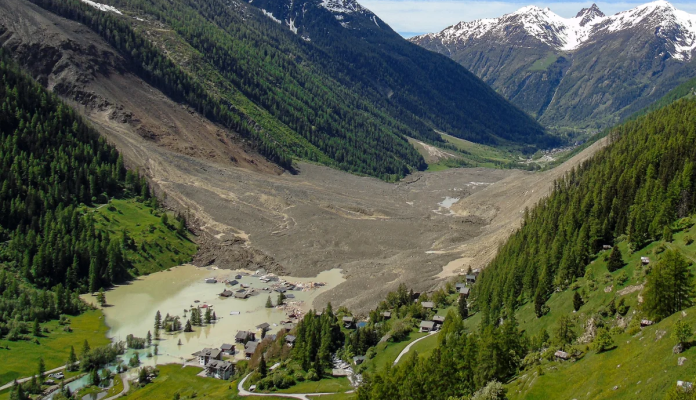The catastrophic collapse of the Birch Glacier onto the Swiss village of Blatten on 28 May exposed the growing vulnerability of Europe’s mountain communities to climate-driven disasters, Euractiv informed.
While 300 residents were safely evacuated before the event, the incident marks an alarming escalation in glacial instability across the Alps. Similar collapses occurred at Piz Scerscen in April 2024 and Italy’s Marmolada Glacier in 2022—the latter claiming 11 lives—suggesting a worrying trend rather than an isolated event.
Michael Huss, a scientist at the Swiss Federal Institute for Forest, Snow and Landscape Research (WSL), confirmed that “several sites in the European Alps are under active observation” for potential instability. While geological factors precondition such collapses, Huss emphasised that climate change acts as a critical accelerator. Though these events remain rare, he warned that awareness and preparedness are now essential for Alpine communities.
The disaster underscores findings from the European Environment Agency that Europe is warming faster than any continent, twice the global average rate since the 1980s. A Science study projects that even if the 1.5°C Paris target is met, glaciers will lose 47% of their mass over centuries. Current emissions trajectories, however, point toward 2.7°C warming, which would devastate mountain ecosystems and water supplies for millions.
The European Commission is preparing a 2040 emissions reduction proposal and developing a Climate Adaptation Plan for 2026. A Commission spokesperson said that progress on climate resilience remains “uneven” across member states, stressing the “paramount” need for science-based risk assessments.
This urgency is heightened by the Blatten collapse, which demonstrates how climate impacts can manifest suddenly and catastrophically in mountainous areas, requiring both immediate evacuation protocols and long-term mitigation strategies.
As Huss noted, while the risks aren’t worsening faster than anticipated, the Blatten disaster proves Europe must rapidly scale up adaptation measures, particularly for the 12 million people living in Alpine regions where glaciers have retreated 60 meters annually since 2000. The event serves as a stark reminder that climate change is no longer a distant threat but an immediate danger reshaping Europe’s physical and social landscapes.
